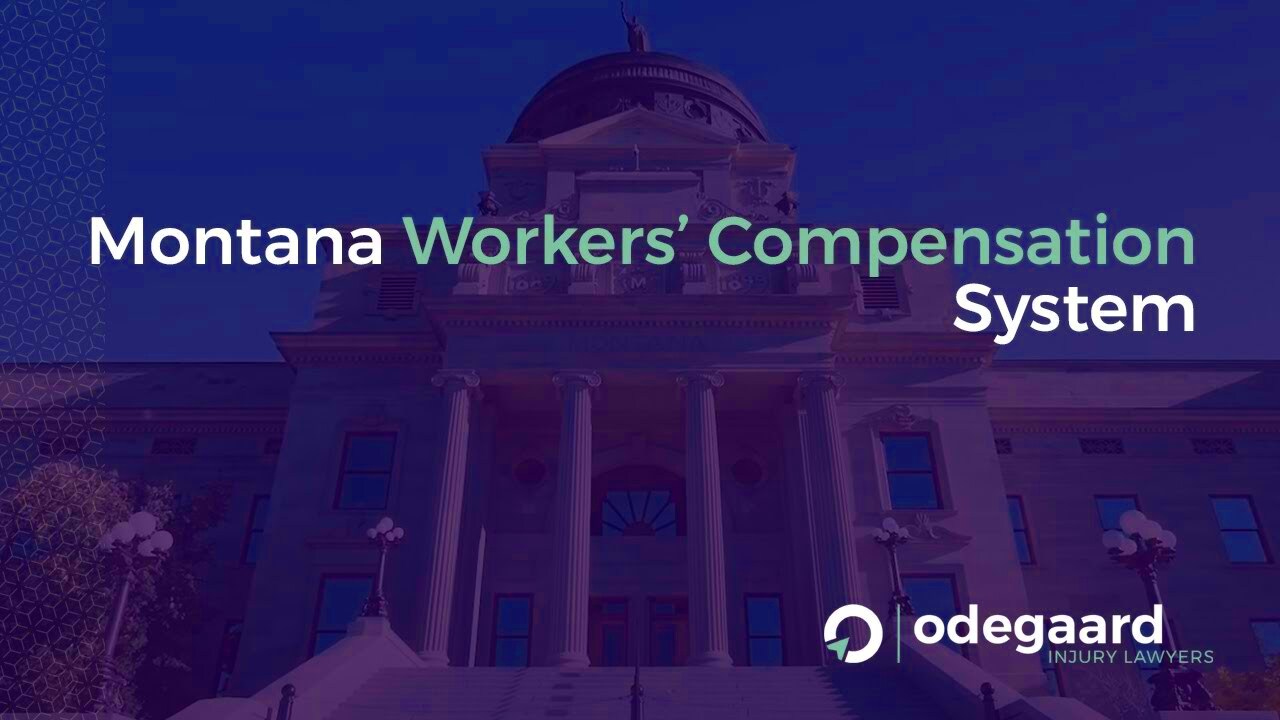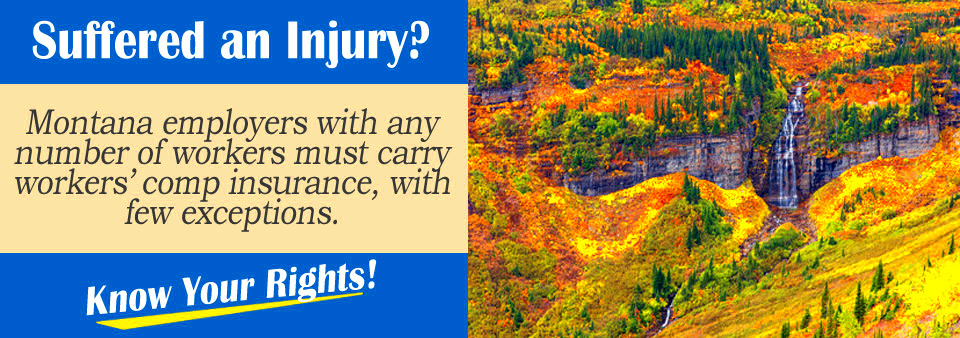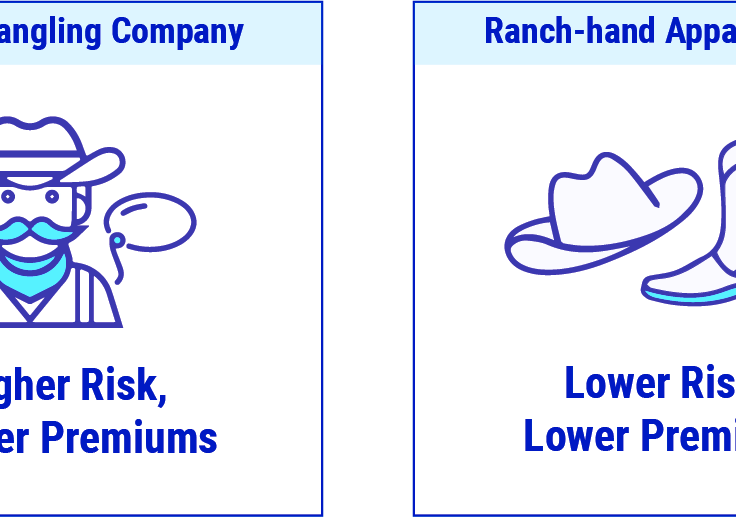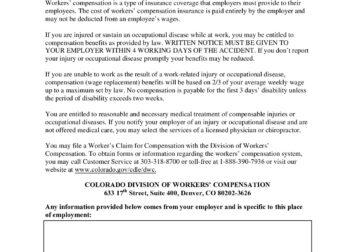Key Aspects of Montana Workers’ Compensation Laws
Montana’s legislation regarding workers compensation is meant to cater for financial aid and health benefits for employees who happen to suffer from job-related injuries or illnesses. This kind of law makes sure that all the necessary treatment is offered regardless of whether the employee is able to pay out of pocket or not. It is important for employees and employers alike to understand how these work in order to make sense out of claim handling processes and accessing benefits.
Eligibility Criteria for Workers’ Compensation in Montana

To meet the qualification for a workers’ compensation in Montana, certain criteria are needed. The critical points include:
- Employment Status: The individual must be an employee of a covered employer.
- Type of Employment: Workers in most industries are eligible, including full-time, part-time, and seasonal workers.
- Injury or Illness: The injury or illness must arise from work-related activities.
- Reporting: Employees must report their injury or illness to their employer within a specific timeframe, typically 30 days.
Independent contractors and volunteers can be exceptions for specific jobs, because they may not be eligible to receive benefits as per Montana law.
Benefits Provided under Montana Workers’ Compensation

Under Montana’s workers compensation laws, an injured employee can enjoy different forms of assistance to facilitate their healing. Here’s a summary of the various benefits that are provided.
| Type of Benefit | Description |
|---|---|
| Medical Benefits | Covers medical expenses related to the injury, including hospital stays, surgeries, and therapy. |
| Wage Loss Benefits | Compensates for lost wages due to time off work, typically around 66% of the average weekly wage. |
| Permanent Disability Benefits | Provides compensation if the worker suffers long-term impairments affecting their ability to work. |
| Vocational Rehabilitation | Assists workers in returning to work through job training and placement services. |
The aim of these advantages is to support employees who have suffered injuries and speed up their recovery and reintegration into the workplace. It is very important for workers to know what benefits they should get in order for them to have enough assistance.
Filing a Workers’ Compensation Claim in Montana
Filing a workers’ compensation claim in Montana is important for employees who have sustained workplace injuries and need financial assistance. Although this may appear to be a difficult task, comprehending its phases will ease the burden. Below is a straightforward strategy that will help you get through the claims process:
- Report Your Injury: Notify your employer about your injury as soon as possible, ideally within 30 days. This is crucial for your claim.
- Complete the Claim Form: Fill out the workers’ compensation claim form accurately. This form typically includes details about the injury, how it occurred, and any medical treatment received.
- Submit Your Claim: Submit the claim form to your employer or their insurance provider. Make sure to keep a copy for your records.
- Follow Up: After submitting your claim, check in with your employer or the insurance company to confirm that your claim is being processed.
Should you win this petition, you will commence getting payments. Nevertheless, should it face rejection, then be reminded that appealing to the courts is within your rights.Hence, it is imperative to maintain comprehensive notes of every conversation and writing surrounding your case.
Employer Responsibilities in Workers’ Compensation
According to the workers’ compensation laws, different employers in Montana are required to provide safety as well as health for their workers. Responsibilities include:
- Insurance Coverage: Employers must maintain adequate workers’ compensation insurance to cover their employees’ injuries.
- Workplace Safety: Employers should provide a safe working environment and follow safety regulations to prevent workplace injuries.
- Reporting Injuries: Employers are required to report any work-related injuries to their insurance provider promptly.
- Cooperation with Claims: Employers must cooperate with the claims process and provide necessary documentation to facilitate timely benefits for injured employees.
Taking on these obligations by employers creates a more secure working environment while aiding their workers in recuperation. In order to facilitate smooth running of the workers’ compensation process, it is crucial for both employees and employers to have an understanding of their responsibilities.
Common Challenges in Montana Workers’ Compensation Claims
The system of workers’ compensations in Montana is meant to assist injured workers but there can be problems at times. Employees may encounter the following hurdles:
- Claim Denials: Claims may be denied for various reasons, including lack of evidence or failure to meet deadlines. Understanding the reasons for denial can help in the appeals process.
- Delayed Benefits: Sometimes, it takes time for claims to be processed, causing delays in receiving benefits. Staying proactive and following up with the insurance company can help reduce delays.
- Disputes Over Medical Treatment: Insurance companies may challenge the necessity of certain medical treatments, leading to disputes. It’s crucial to have clear documentation from healthcare providers.
- Limited Benefits: Some workers may feel the benefits provided are insufficient for their needs, especially if they face permanent disabilities. Knowing your rights and available resources can help address this issue.
As a result, owing to this realization workers may engage themselves fully in the claim proceedings to guarantee that they are given the required help and compensations.
Important Deadlines in Workers’ Compensation Cases
Meeting deadlines is vital in recovering your entitled benefits when discussing Montana worker’s compensation claims. If you miss these deadlines, it may lead to having your claims denied or losing benefits. Some of the deadlines you should pay attention to include:
- Injury Reporting Deadline: You must report your injury to your employer within 30 days of the incident. Failing to do this can jeopardize your claim.
- Claim Filing Deadline: After reporting your injury, you generally have up to 18 months to file your formal workers’ compensation claim.
- Medical Treatment Notification: If you receive medical treatment, you should notify your employer and the insurance provider about this treatment within 30 days.
- Appeal Deadline: If your claim is denied, you have 60 days from the denial notice to appeal the decision.
To manage your time during this sex cell process, it is crucial to be observant about the decisive timings. A checklist or calendar can be beneficial in making sure that you are not late for any imperative event. It is important remember to always be ahead of what to expect if you want to obtain your employees’ injury compensation privileges.
Frequently Asked Questions about Montana Workers’ Compensation Laws
It is understandable to have questions regarding the intricacies of employee compensation regulations. These are some of the questions that are frequently asked:
- What types of injuries are covered? Most work-related injuries and illnesses are covered, including physical injuries and occupational diseases.
- Can I choose my doctor? In Montana, you may have the right to choose your healthcare provider, but it’s best to check your employer’s policies and the insurance requirements.
- What if my claim is denied? You can appeal the denial within 60 days. It’s essential to gather any additional documentation that supports your case.
- Will I receive full wages while on leave? Typically, wage loss benefits cover about 66% of your average weekly wage, which may not be the full amount you earned.
For more personalized clarity and guidance regarding your situation you should consider approaching a worker’s compensation lawyer in case there is something bothering you specifically.
Conclusion on Key Aspects of Montana Workers’ Compensation Laws
Essential for both employees and employers is an understanding of worker’s compensation laws in Montana. The primary aim of these laws is to protect injured workers at work and offer required benefits. This encompasses aspects like criteria for eligibility; claims procedure; employer obligations; and diverse benefits available.
Having knowledge of significant closing dates may help in a timely filing of claims that are accurate. Furthermore, understanding the issues usually encountered and questions often asked enables employees to maneuver smoothly through the system.
Though you may feel confused about what to do, remember that knowledge of Montana worker’s compensation laws will enable you to claim your monetary entitlement in a fair way. Additionally, if you have any question concerning this subject or need more explanations, consult with an expert in the field.


